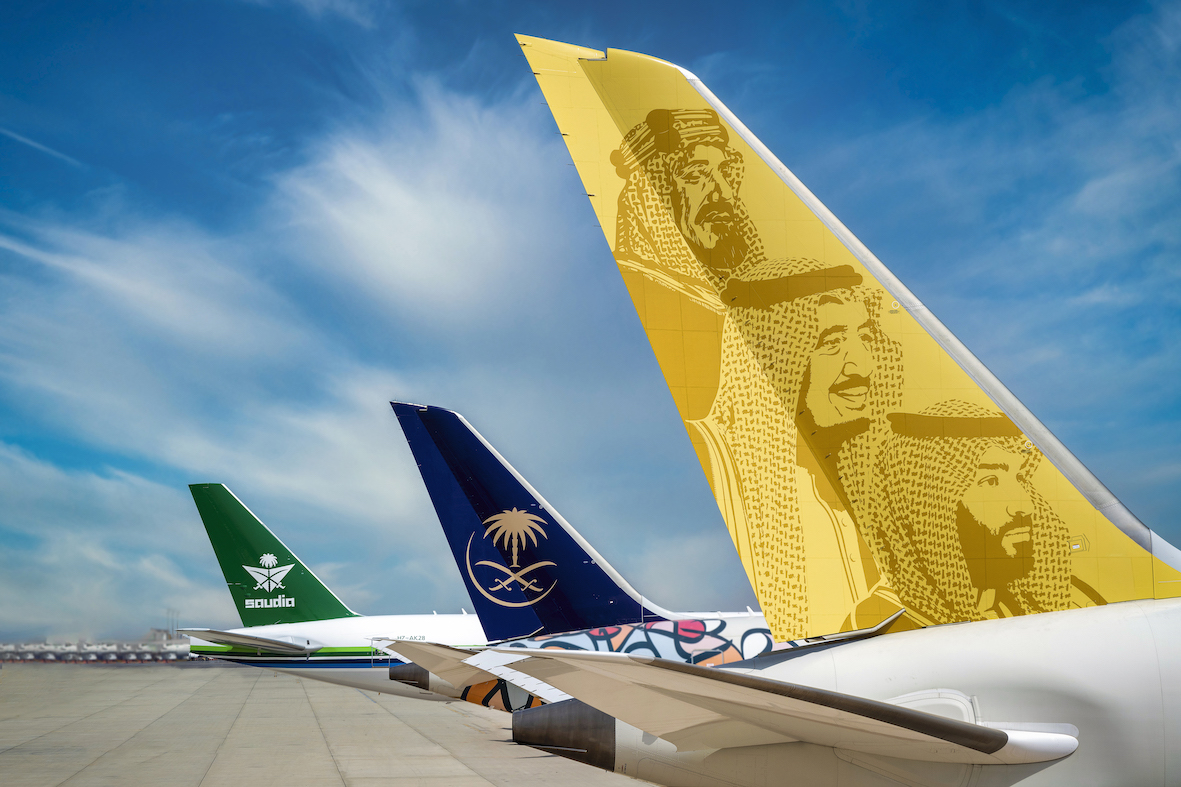ADVOCACY: Aviation and the digital economy
After the most challenging period in the history of aviation, a digital revolution is helping the industry to once again take off
It is no secret that the past year has been one of the most challenging ever faced, with the aviation sector no exception. We have witnessed commercial air travel come almost to a standstill, airports lying deserted and nearly half of the global fleet put into hibernation.
Data, AI, cloud services and digital tools are transforming almost every part of our lives and are propelled by the pandemic: The global digital transformation has only increased in pace over the past 18 months. We have all witnessed, and experienced, how technology not only helps us to remain connected to one another, but also helps to keep us safe, with airlines investing more than $40 billion this year on IT. As an industry, we are no strangers to the power and utilisation of digital, but never before has it been brought into such sharp focus.
As we now look towards the reopening of international travel and the next evolution of the aviation sector, we must embrace the power of digital to ensure that no one is left behind. It is not only key to our recovery from the pandemic, as we move from almost zero passengers back to 4.5 billion global air travellers – it is vital to the future of our industry.
No stone unturned
Saudi Arabian Airlines (SAUDIA) is one of the first air transport companies to be established in the Middle East, and is the national flag carrier of Saudi Arabia. In the face of the pandemic, we took a ‘no stone unturned’ approach to our operations – implementing one of the most rigorous lineups of COVID-19 protocols worldwide. As we celebrated our 75th year of operations last year in one of the most challenging years in aviation history, we took a multilayered approach to combatting the pandemic head-on. Subsequently, SAUDIA was awarded the Diamond Status by APEX Health Safety powered by SimpliFlying. The accolade from the Airline Passenger Experience Association recognises industry leadership and stewardship in ensuring that the airline is deploying stringent measures in safety and protection from COVID-19.
In November 2020, Saudi Arabia became the first Arab nation to hold the G20 presidency. Under the theme of ‘Realizing Opportunities of the 21st Century for All’, Saudi Arabia led the international response to the pandemic through its presidency; a response centred around digital technology and innovation, and one that focused on the health and safety of the global population.
Now under Italy’s presidency, we have seen the G20’s Digital Economy Task Force continue the work started under the Saudi Arabian presidency and commit to the future by transforming the Task Force into a permanent Digital Economy Working Group. In an industry where every second counts and delays bring catastrophic consequences and cost, it is encouraging to see this remain at the heart of the G20’s agenda.
In the aviation sector, digital tools have helped facilitate travel during a global health crisis. They have enabled us to maintain social distancing, protecting staff and travellers (SAUDIA’s entire onboard crew has been 100% vaccinated as of May 2021). We are proud to operate one of the youngest fleets in the skies and by embracing digital technology, we strive to set the pace for the advancement of digital tools in the aviation sector. To that end, we signed up to IATA’s Travel Pass, which has subsequently been implemented nationwide for all travellers to and from the Kingdom of Saudi Arabia. Thanks to the swift actions of the SDAIA (Saudi Data and Artificial Intelligence Authority) and GACA (General Authority of Civil Aviation), all travellers arriving and departing from Saudi Arabia may utilise the IATA Travel Pass – which is a digital solution providing a centralised hub through which travellers can present their travel health credentials and better understand travel requirements. Innovations like these enable us to optimise passenger safety, security and ease of travel.
More efficient, fewer emissions
At a time when we are increasingly conscious of our impact on the world around us, integrating digital tools can help airlines improve efficiency and reduce emissions. For example, in the past year, airlines have doubled their investment in self-boarding using biometric and ID documentation. From how we design and manufacture planes, to how we run airports and airlines, to the passenger experience, the digital revolution will change the face of aviation.
We now have a collective responsibility to ensure that this does not slip from our radar. A digital revolution in aviation will enable the sector to take off once more and continue the course for a safe and prosperous future.












